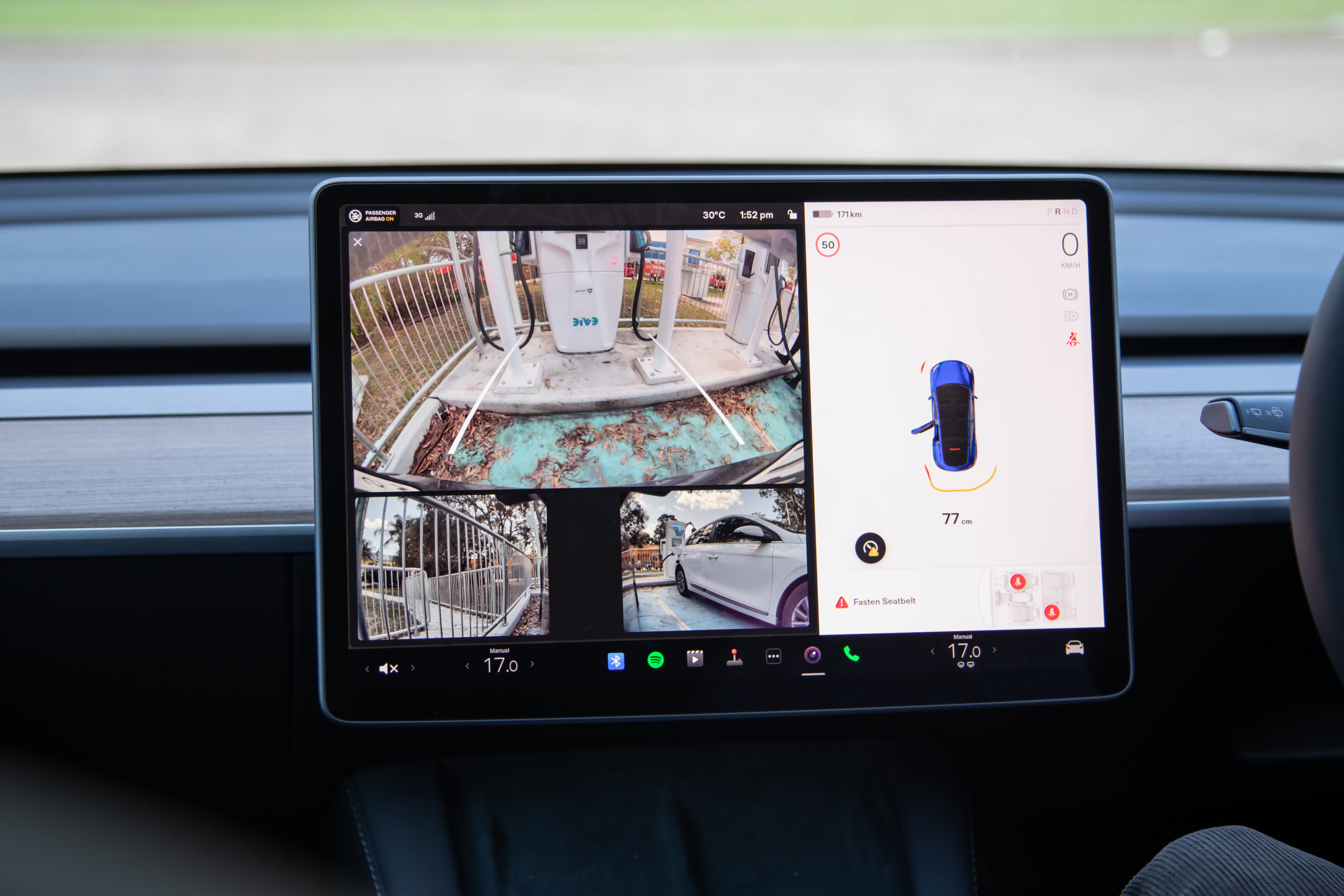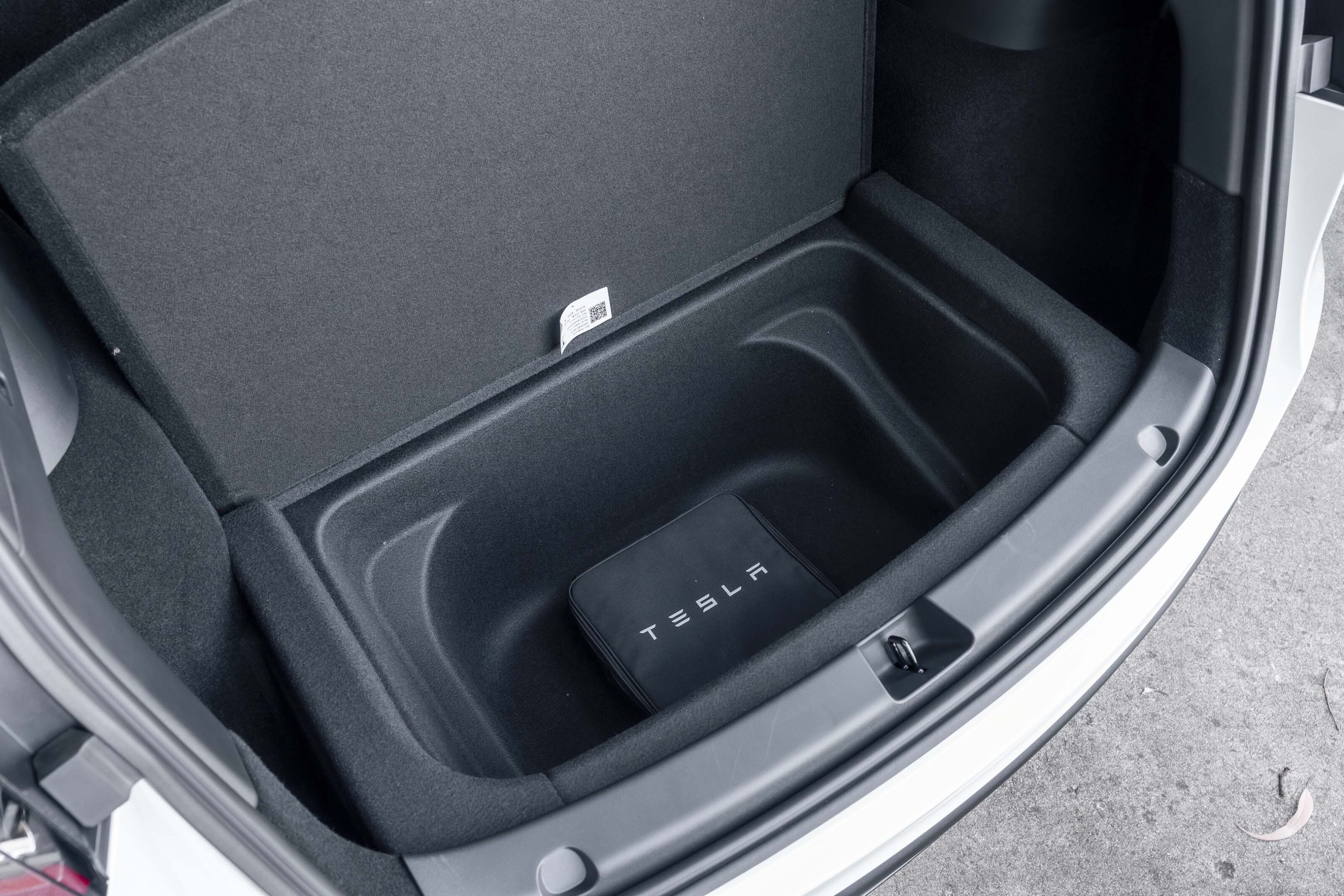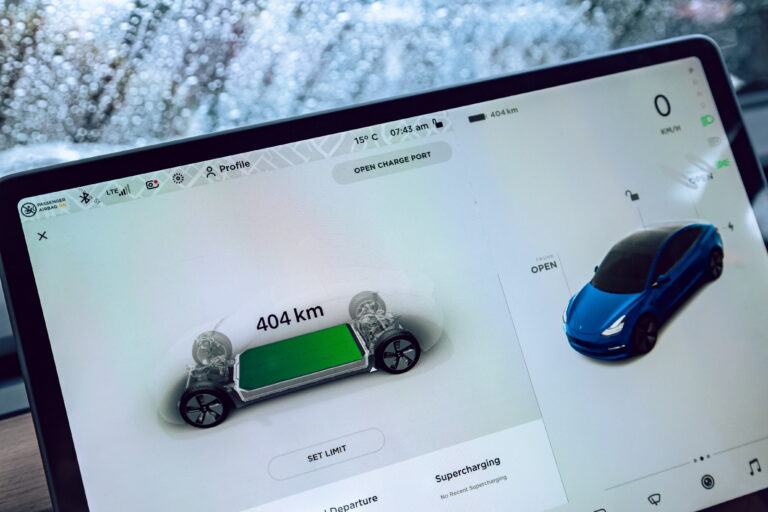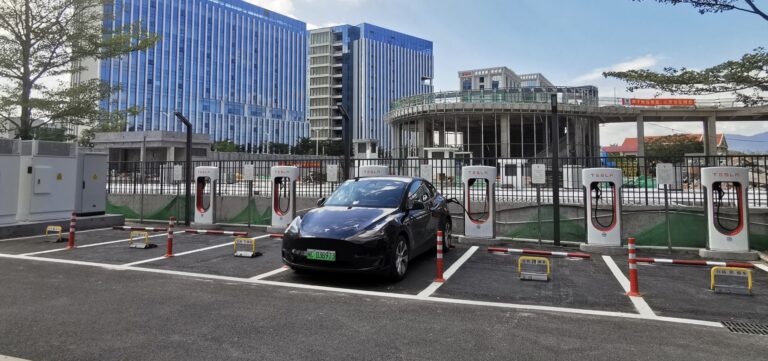
A team of French cybersecurity researchers have exploited a Tesla Model 3’s critical systems twice at the Zero Day Initiative’s Pwn2Own annual hacking contest in Vancouver.
These events are also known as ‘hackathons’ and are commonly run as a ‘whitehat’ security exercise to help identify vulnerabilities that might otherwise be exploited by bad actors.
Snapshot
- French researchers exploited Model 3 system vulnerabilities twice
- Allowed them to open doors, deep access into central infotainment system
- Hacking contest aims to surface hidden u2018zero-dayu2019 vulnerabilities for affected companies to address
The Synacktiv team gained access the electric vehicle within two minutes by executing a time-of-check-to-time-of-use (TOCTTOU) attack on Tesla‘s Gateway energy management system.
It allowed them to remotely open the frunk (front storage) while the vehicle was driving – and were rewarded with $149,300 (US$100,000) and a new Model 3 sedan for discovering the tier-three vulnerability.

What is a hackathon?
In the context of finding vulnerabilities, a hackathon is an organized event where security professionals or ethical hackers come together to identify and exploit vulnerabilities in a particular system or application. Participants work in teams or individually to find and report security flaws, with the goal of improving the security of the system or application.
In the second hack, Synacktiv researchers exploited a heap-overflow vulnerability and an out-of-bounds write error in an external Bluetooth chipset to access Tesla’s infotainment system and subsequently gain root access to other deeper subsystems.
They were rewarded an additional $373,200 (US$250,00) bounty as the contest’s first-ever attack classified as a tier-two level – which is reversed for particularly impactful vulnerabilities and exploits.
Due to the risk of hacking a vehicle, the team demonstrated their exploits on a separated Tesla head unit and componentry – which is the home to nearly all of the vehicle’s controls, including the speedometer, adjusting the mirrors, and opening the glovebox.
In total, participants in the three-day hacking contest discovered 27 unique zero-day vulnerabilities, including in Microsoft SharePoint, Teams and the Windows 11 operating system, with the Trend Micro-owned organisation giving out $1.5 million (US$1.03 million).
Unlike other carmakers, Tesla recently published its data privacy policy, stressing its high-tech EVs mostly localise and anonymise data collection.
Major car brands are increasingly becoming ‘software-driven’ technology companies by investing in their own operating systems, while others such as Volvo, Polestar and Renault adopt built-in systems from tech giants such as Google’s Android Automotive and the forthcoming next-generation Apple CarPlay.
We recommend
-
 News
NewsTesla security weakness exposed by teenage hacker
The young researcher wanted to show off the flaws in Tesla's system
-
 News
NewsTesla amps up anti-ICE technology
Supercharger access for Chinese owners is about to get even easier
-
 News
NewsTesla payment system hack costs buyers big
EV automaker’s payment method leaves buyers reeling as criminals swoop in and take their cash




